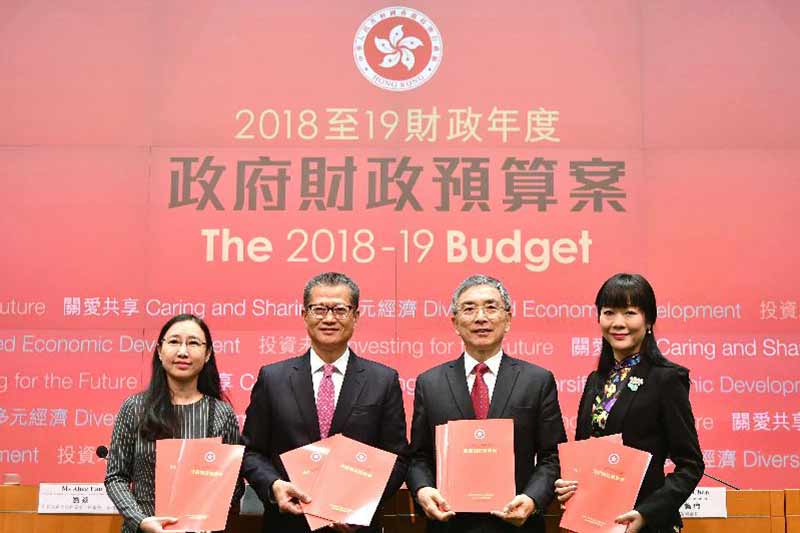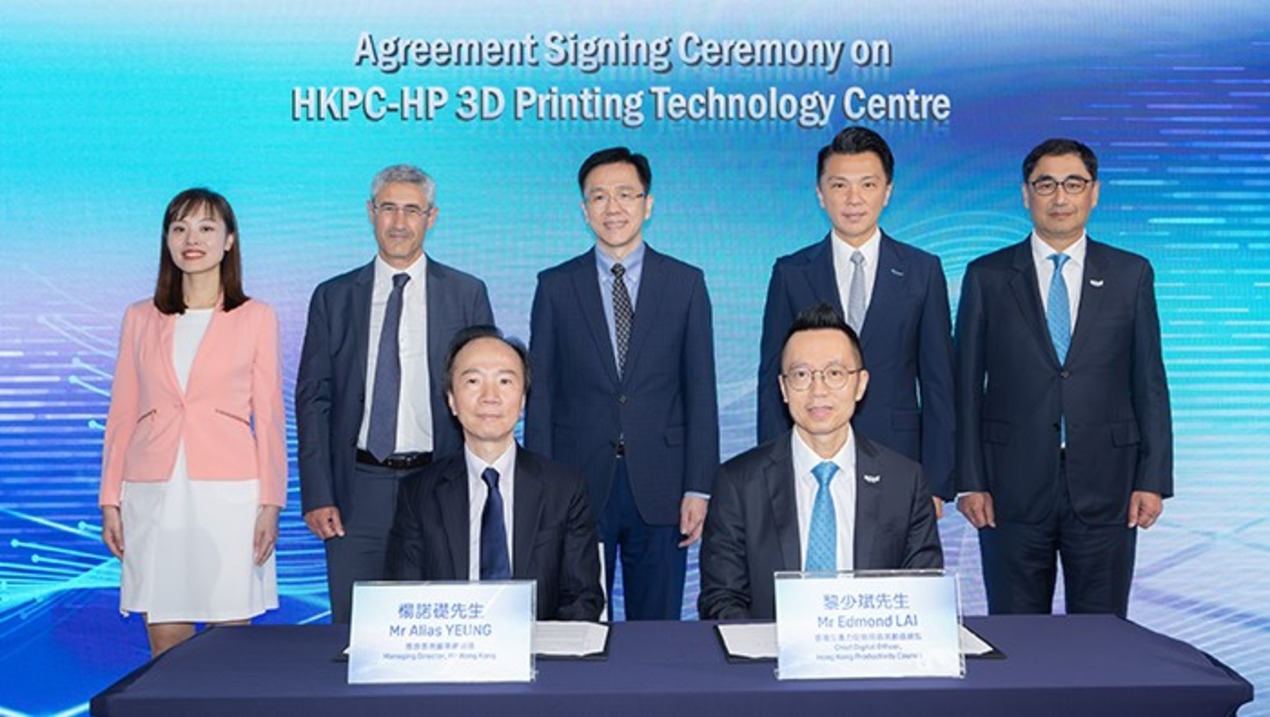
The Hong Kong SAR Government is spending over HK$50 billion to support innovation alongside tax cuts and
relief measures.
In his annual Budget speech on Wednesday (Feb 28), HKSAR Financial Secretary Paul Chan said that innovation and technology is undoubtedly an economic driver in the new era.
To stay ahead of the game, Hong Kong must: (1) enhance its innovation and technology environment, (2) attract companies from new economy sectors and research institutions to set up their presence in Hong Kong and (3) nurture talent for a knowledge-based economy.
HKSAR Financial Secretary Paul Chan described innovation and technology as an “unstoppable wave” that is fundamentally changing the global economic structure and the way we live and consume.
These technologies, including artificial intelligence (AI) and big data have not only spurred the birth of many new industries that operate across industries, sectors and geographical areas, as well as the emergence of the sharing economy, but also revolutionised the traditional and capital-intensive business model based on tangible assets.
He pledged to set aside HK$50 billion this year, on top of the HK$10 billion announced last year, to fund the growth of innovative and creative industries, as well as research and development (R&D).
To optimise its resources, Hong Kong is focusing on developing 4 major areas of strength, namely: (1) biotechnology, (2) AI, (3) smart city and (4) financial technologies (Fintech).
The following are key initiatives of the HKSAR Government in developing the key innovation and technology areas:
Lok Ma Chau Loop
The HKSAR Government will spend HK$20 billion on the first phase of the Hong Kong-Shenzhen Innovation and Technology Park in the Lok Ma Chau Loop for, inter alia, site formation, infrastructure, superstructure and initial operation.
Innovation and Technology Fund
HK$10 billion will be injected into the Innovation and Technology Fund (ITF). Administered by the Innovation and Technology Commission, the ITF aims to increase the added value, productivity and competitiveness of economic activities in Hong Kong. It also aims to encourage and assist local companies to upgrade their technological level and introduce innovative ideas to their businesses.
The ITF’s financial support for innovation and technology development in Hong Kong has increased from about HK$700 million in 2013-2014 to HK$1.5 billion in 2017-2018. The ITF will continue to support applied R&D work in Hong Kong with the additional resources.
Establishing Technology Research Clusters
The HKSAR Government has set aside HK$10 billion to support the establishment of 2 research clusters on healthcare technologies and on AI and robotics technologies.
These research clusters will pool and nurture more technology talent in Hong Kong by attracting the world’s top scientific research institutions and technology enterprises to Hong Kong for conducting more midstream and downstream R&D projects in collaboration with local universities and scientific research institutions.
Financial support will be provided to non-profit-making scientific research institutions that will establish their presence in these two clusters.
Science Park
Since 2001, the Science Park has been Hong Kong’s flagship technology infrastructure. To reinforce the Science Park in its role to drive the city’s science and technology development, HK$10 billion has been allocated to the Hong Kong Science and Technology Parks Corporation (HKSTPC).
Of that, about HK$3 billion will be used to construct research-related infrastructure and facilities, whereas the remaining HK$7 billion will be used for the HKSTPC to enhance support for its tenants and incubatees, and set up a Smart Campus in the Park, etc.
At the moment, the Science Park is also undergoing expansion. It is expected to provide extra space for start-ups and other technology companies in two years.
Cyberport
Cyberport focuses on building key clusters of digital technology, namely FinTech, eCommerce, IoT/Wearables and Big Data/AI to foster the development of Hong Kong into a Smart City. As the flagship for Hong Kong’s digital technology industry, the Cyberport is an innovative digital community with 1,000 digital technology companies.
To support start-ups and grow the digital technology ecosystem, the Government set aside HK$200 million to Cyberport. On top of overseas business missions, trade fairs and exhibition, the funds will be used to: (1) launch an “easy landing” programme to attract multinational companies to set up offices and R&D units in Hong Kong, and (2) roll out a new support scheme, offering financial assistance up to HK$200,000 for each eligible start-up to
conduct market research and promotion.
The financial assistance offered under Cyberport’s incubation programme to individual start-ups will also increase by 50% to HK$500,000.
E-sports
In promoting the development of e-sports, an additional HK$100 million will be allocated to Cyberport for the Cyberport Arcade. The Cyberport Arcade will become a local e-sports and digital entertainment node providing a competition venue for e-sports. Support will also be provided for the e-sports sector in areas such as technological development and talent nurturing.
“On the premise of ensuring the health of our public finance, the Government should adopt forward-looking and strategic financial management principles in optimising the use of surplus to invest for Hong Kong and relieve our people’s burdens,” said Financial Secretary.
“In formulating fiscal policies, we should strive to be innovative, responding to community aspirations promptly and effectively and making a head start to foster long-term development.”
In parallel with the new initiatives, the Hong Kong SAR Government will continue to invest in education, training and retraining to enhance the quality and competitiveness of its workforce.
Analysts tend to agree that the Budget this year marks a departure from the conservative stance taken in previous years. Most noted that the Budget is forward looking to ensure the city’s long-term economic growth,
particularly in the disruptive wave of technological advancement.
The full Hong Kong Budget 2018-2019 can be found here.
















